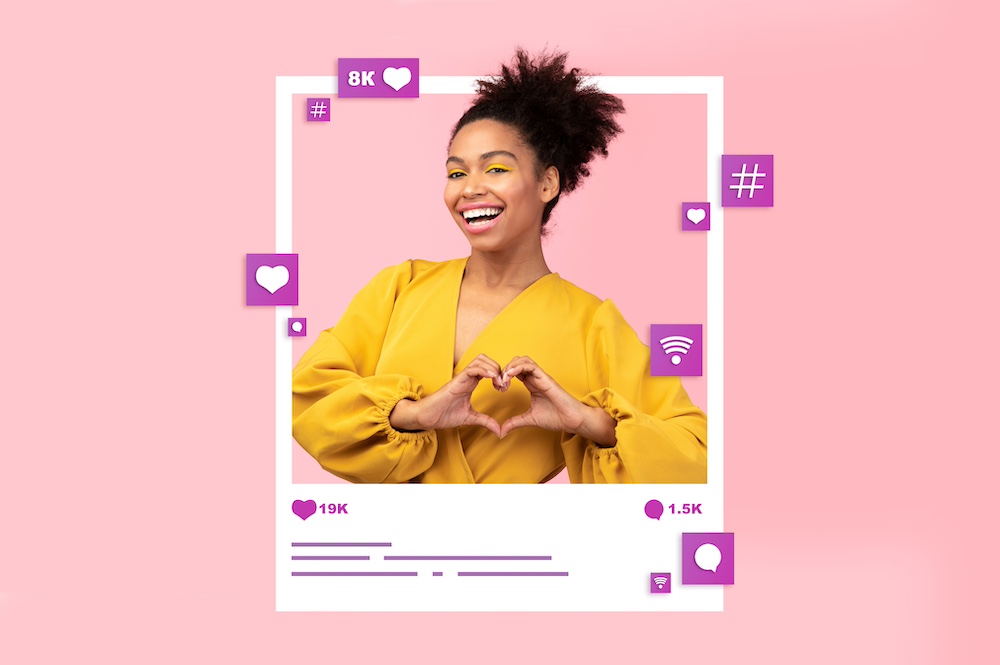By Heather King
Small business owners face the constant challenge of standing out in the fast-paced digital world, where content is king and social media rules. For many, influencer marketing offers a way for small businesses to boost online presence, increase brand awareness, and drive sales. This guide is dedicated to helping social media-savvy business owners understand influencer marketing and how to partner with the right influencers to shine the spotlight on your brand.
What is Influencer Marketing?
At its core, influencer marketing is a form of collaboration. A business partners with an influential person on social media to promote a product, service, or campaign. These influencers have dedicated and engaged groups of followers in various niches, from lifestyle and beauty to tech and entrepreneurship, and can offer opportunities for businesses to connect with their authentic and engaged audience.
How to Work with Influencers
Choosing and collaborating with the right influencer for your small business involves several steps:
- Define Your Goals: Like any marketing strategy, begin with clear objectives. Are you looking to increase brand awareness, launch a new product, or drive traffic to your website? Your goals will shape the type of influencer and campaign you should pursue.
- Identify the Right Influencer: Not all influencers are created equal, especially for small businesses. Look for influencers who align with your brand’s values, tone, and style. Micro-influencers, with followers ranging from 1,000 to 100,000, often have higher engagement rates and a more loyal following than their macro counterparts.
- Engage and Build a Relationship: Before pitching your brand, engage with potential influencers. Like and comment on their posts to get on their radar. Building a relationship before an official collaboration can lead to a more authentic partnership.

4. Develop a Campaign Together: Once you’ve established contact, collaborate with the influencer to create a campaign that feels genuine to their followers. Influencers know their audience best, so their input is invaluable in crafting a message that resonates.
5. Measure and Analyze Results: Establish key performance indicators (KPIs) based on your goal at the beginning of the campaign. Utilize tools and platforms to track these metrics and analyze the campaign’s performance. Use those KPIs to further refine your influencer strategy.
Social Media Partnership 101
While the potential benefits of influencer marketing are significant, there are certain elements that can make the difference in a successful campaign.
- Authenticity: An influencer’s promotion should feel natural and genuine. Audiences can easily detect a forced promotion, which might harm your brand’s credibility.
- Regulations: Make sure that any partnership complies with the relevant advertising standards and regulations, such as clearly disclosing the sponsored nature of the content.
- Audience Fit: Be cautious of influencers with a high number of followers but a low engagement rate, as this may indicate a disinterested audience or, worse, a fake following.
- Long-term Relationships: Consider building long-term partnerships with influencers who genuinely connect with your brand. Single posts can generate quick wins, but ongoing collaborations can lead to sustained growth.

Influencer Marketing Wins
For small businesses like yours, influencer marketing presents a compelling opportunity to amplify your brand message and connect with a broader audience that could be a great fit for your business. By choosing the right influencer, collaborating to craft authentic and engaging content, and carefully monitoring the campaign’s impact, your business can leverage influencer marketing to achieve engaging results. Remember, influencer marketing is about building relationships—both with influencers and your audience—that stand the test of time.
To learn more about influencer marketing, set up a consultation with Elle Marketing.

